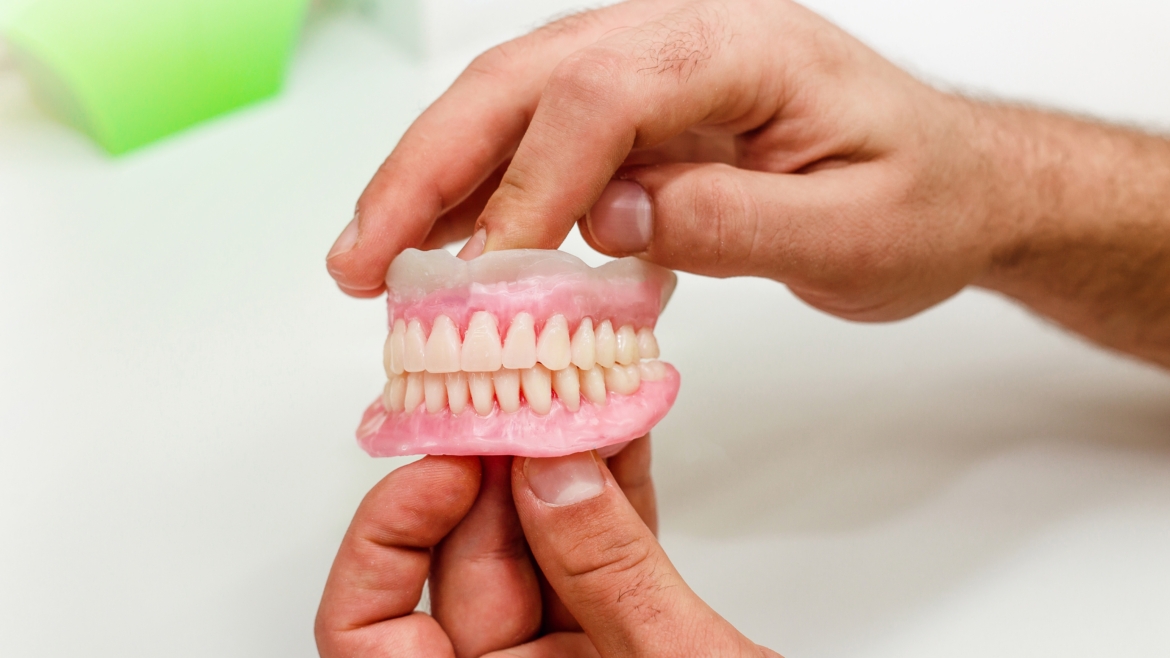Dott. Danilo Trapani
The transition to removable prosthesis, commonly known as dentures, represents an important change from both a functional and psychological point of view. However, with correct preparation and the assistance of a dentist expert in removable dentures, it is possible to face the transition with peace of mind.
What does denture preparation consist of?
Each mouth has unique characteristics: for this reason, dentures cannot be standardized. Preparation involves several fundamental phases, including:
- Personalized dental impression: the shape of the patient’s gums is detected.
- Registration of the occlusion: this checks how the two arches close together.
- Aesthetic wax test: the artificial teeth are mounted on a wax model to evaluate their aesthetics and functionality before final creation.
This phase requires precision, competence and experience to guarantee a comfortable and natural-looking prosthesis.
How nutrition changes with removable dentures
In the first few days with dentures, your diet will undergo changes:
- A soft or semi-liquid diet is recommended, especially in the first few weeks.
- Avoid foods that are too hot or hard, which could cause discomfort or move the dentures.
- It is suggested to chew slowly and on both sides of the mouth to improve stability.
- Using sugar-free chewing gum can help speed up adaptation by improving oral muscle coordination
Is it normal for dentures to move?
Yes, at least initially. Even if the denture is molded to the patient’s mouth, it is common for:
- The tongue interferes with holding in the first few days.
- The gums change shape slightly after insertion of the prosthesis, reducing its stability.
To improve adhesion, specific adhesives for dental prostheses can be used, which increase hold and comfort.
How do you clean dentures correctly?
Daily cleaning of the denture is essential to prevent infections, bad odor and gum inflammation.
- Here are some pointers:
- Rinse your dentures after each meal to remove food residue.
- Clean your dentures with a special toothbrush and a specific toothpaste for dentures.
- Use solvents or cleaning tablets to remove adhesive residue.
- Avoid using abrasive toothpastes or boiling water.
A dirty denture can cause gingivitis, bad breath and reduced adhesion.
How long does the adaptation period to dentures last
The time needed to get used to the removable prosthesis varies from patient to patient, but generally:
- The adaptation period is one to two weeks.
- The lower denture requires more time than the upper one, due to the greater mobility of the tongue.
- It is recommended to remove dentures during the night, to allow the gums to rest and oxygenate.
It is important to be patient and follow the dentist’s instructions to speed up the adaptation process.
When you need to change your dentures
A removable dental prosthesis is not eternal. On average, it should be replaced every 5 years, but it may be necessary to intervene earlier in the case of:
- Prosthesis that moves or no longer adheres correctly
- Discomfort or pain when chewing
- More aged appearance of the face
- Worn or yellowed prosthesis
The dentist will evaluate any changes or the need for a new construction. It is recommended to carry out annual checks to monitor the tightness of the prosthesis.

